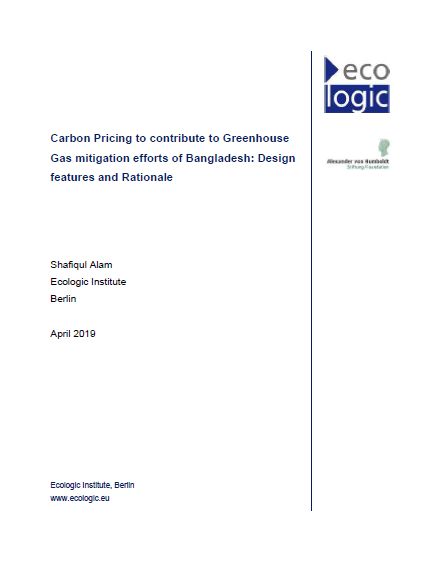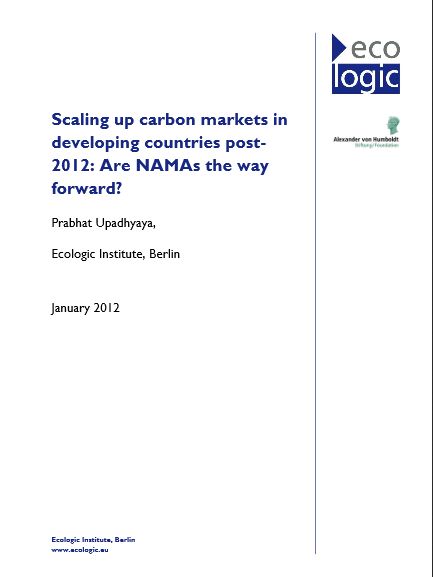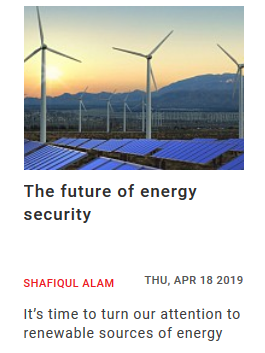Carbon Pricing to Contribute to Greenhouse Gas Mitigation Efforts of Bangladesh: Design features and rationale
- Publication
- Citation
Alam, Shafiqul 2019: Carbon Pricing to Contribute to Greenhouse Gas Mitigation Efforts of Bangladesh: Design features and rationale. Ecologic Institute: Berlin.
Bangladesh needs to turn its pledges into effective policy instrument to realize the promises about greenhouse gas (GHG) mitigation made in the Nationally Determined Contributions (NDC). In that regard, analyzing the energy and climate policies of Bangladesh and consulting with the stakeholders from Bangladesh and other countries, Shafiqul Alam in his recent study titled "Carbon pricing to contribute to greenhouse gas mitigation efforts of Bangladesh: design features and rationale" provides new insights on the possible policy instrument for Bangladesh to achieve the target of NDC and raises some fundamental policy issues. The study is available for download.
As Bangladesh is enjoying sustained GDP growth, overall GHG emission is increasing. The third national communication, recently prepared for United Nations Framework Convention on Climate Change, also confirms the rising trend of GHG emission. Moreover, the projected economic growth and increase in the use of coal in power generation might exacerbate the emission trend forecasted in NDC. Allocation of public funding for mitigation projects is also unlikely for the country that has a very low tax to GDP ratio. Based on expert interviews and a detailed review of different carbon pricing instruments of selected countries, the study concludes that a carbon tax scheme could address these problems and shape the future emission trajectory of Bangladesh. It would also accelerate the phase-out of energy subsidy process of the government, freeing up resources to recycle for development projects. As carbon tax can complement other policies, it should be flanked with complementary policies, such as, renewable energy and energy efficiency policies and be part of a larger energy, climate and fiscal policy mix. Taking these into account, a possible implementation framework of a carbon tax scheme is proposed. The study recommends that the government should reconsider the plan to increase share of coal in power generation in the foreseeable future as renewable energy is already cheaper than coal in the international market.
The study highlights that despite the precise impacts and benefits of carbon tax, implementation of such a tool warrants strong political will. It is also essential to understand the distributional impacts of carbon tax on the economy and welfare impacts of carbon tax on the poor even if the plan is to start with a low tax base.
The author of the report, Shafiqul Alam was supported by the Alexander von Humboldt Foundation within the framework of International Climate Protection Fellowship to conduct this study during 2018-19 and hosted by the Ecologic Institute. Shafiqul Alam was mentored by Benjamin Görlach of Ecologic Institute.





